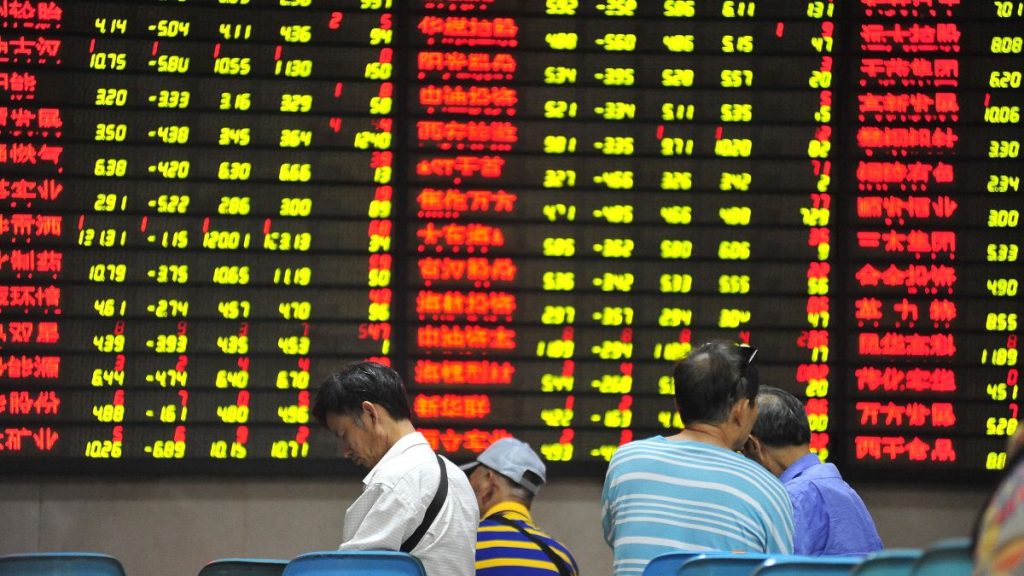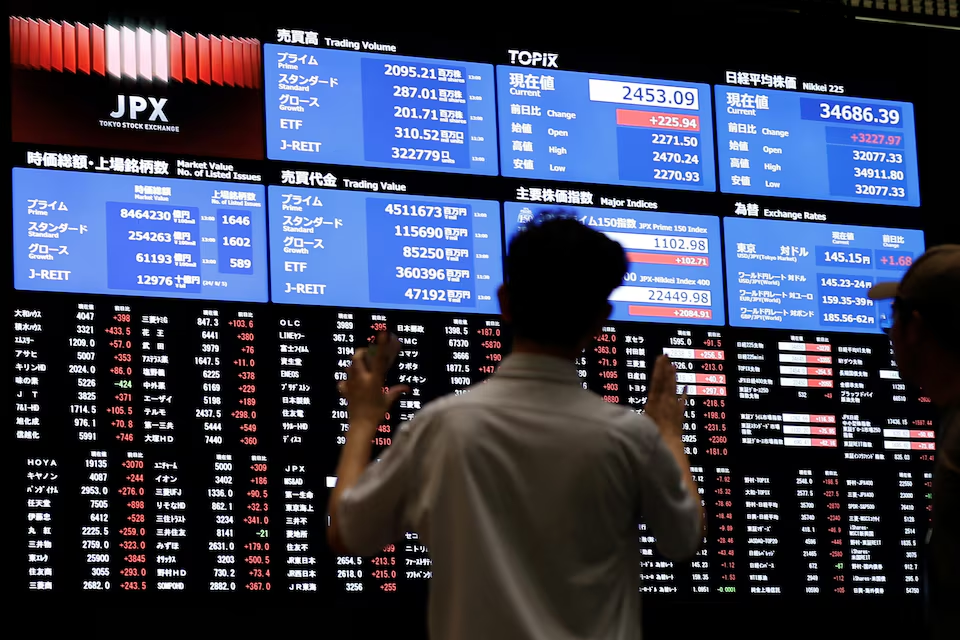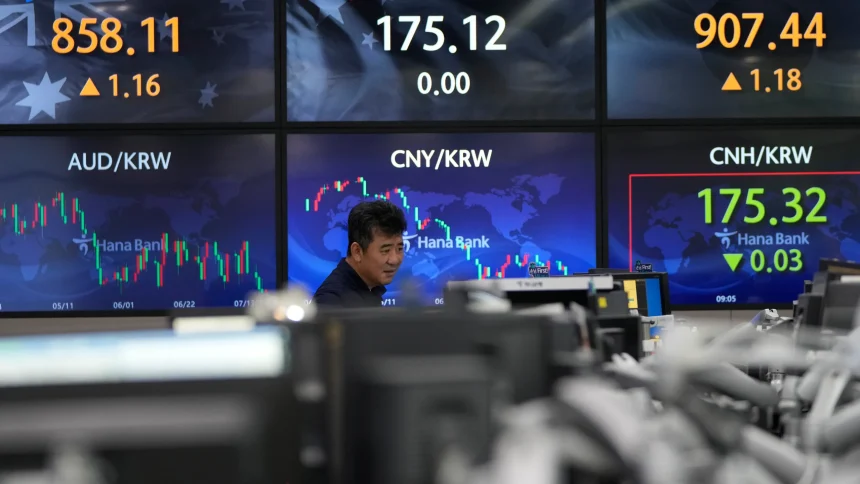Asian shares hit fresh three-month lows on Friday as investors braced for pivotal U.S. inflation data, fueling anxiety over high price pressures.
The financial world is on edge, awaiting the release of the Core Personal Consumption Expenditures (PCE) index, a critical inflation measure that could shape expectations for U.S. Federal Reserve policy in the coming year.
The Core PCE, a closely watched indicator by the Federal Reserve, is forecasted to show a 0.2% monthly increase for November. However, any upward surprises in the data could push investors to further scale back expectations for U.S. policy easing in 2024.
Currently, markets predict fewer than two rate cuts next year, with the terminal rate projected at 3.9%. This is a stark contrast to more optimistic expectations just months ago.

This cautious outlook has already had a significant impact on the Treasury market. Benchmark 10-year yields have risen sharply, gaining 40 basis points in just two weeks to breach the 4.5% level for the first time since May.
Adding to investor concerns is the looming risk of a U.S. government shutdown. Political divisions within President-elect Donald Trump’s Republican Party have surfaced, with even some GOP members expressing reservations about his ambitious spending plans.
READ MORE: South Korea Announces New Policy to Strengthen FX Liquidity and Stabilize the Won
The proposed policies, including tariffs, tax cuts, and massive spending initiatives, have contributed to the Federal Reserve’s cautious stance on policy easing.
James Rossiter, Head of Global Macro Strategy at TD Securities, highlighted the broader concerns, stating, “Uncertainty is going to remain high, policy shocks significant, and markets are likely to twist and turn more than in the recent past. 2025 is going to be a ride.”

In Asia, markets mirrored the global unease. The MSCI Asia-Pacific index, excluding Japan, dropped 0.6% to a three-month low and was on track for a 3% weekly loss. Japan’s Nikkei index was flat on Friday but down 1.7% for the week. Despite this setback, the Nikkei has gained 16% this year, bolstered by the yen’s depreciation of 12% in 2024.
Both China’s blue-chip stocks and Hong Kong’s Hang Seng index showed slight gains of 0.2%. The People’s Bank of China maintained its benchmark lending rates on Friday, aligning with market expectations.
Globally, central banks have taken diverse approaches in their final rate decisions for the year. While Britain, Japan, Norway, and Australia kept their rates steady, Switzerland and Canada implemented significant 50-basis-point cuts. The European Central Bank and Sweden’s Riksbank also opted for modest reductions of 25 basis points each.
In Japan, the Bank of Japan held rates steady, with Governor Kazuo Ueda maintaining a dovish tone. Despite November data showing an acceleration in Japan’s core inflation, markets remain divided on the likelihood of any rate changes at the BOJ’s January meeting, with swaps pricing in a 58% chance of a pause.

The dollar continues to dominate, reaching a two-year peak of 108.43 against major currencies. Its strength, driven by the U.S. interest rate advantage, has weighed heavily on global currencies and commodities.
- Yen: Stabilized near a five-month low of 157.11 per dollar after a 1.7% overnight dive.
- Euro: Down 1.4% for the week at $1.0359, threatening critical support levels.
- Gold: Prices fell 2% this week to $2,596 per ounce.
- Oil: U.S. West Texas Intermediate dropped 0.6% on Friday to $68.98 per barrel, marking a 2.8% weekly decline.
The U.S. Treasury market continues to struggle, with 10-year yields climbing 16 basis points this week to reach 4.56%. For the year, yields are up a staggering 70 basis points, reflecting the persistent challenges posed by inflation and rising interest rates.
REUTERS

